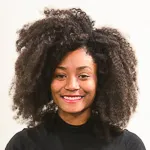In “Waging battles on slippery slopes” Derek Ouyang ’15 responds to an article I originally published in The Stanford Daily: “I am a cockblocker: Male privilege and the campus party scene.” The article you are reading now was originally going to be a response to Ouyang’s response that condescendingly belittled my experience and the experiences of many women who choose to participate in the party scene; it was going to be a call for those who agree with his perspective to examine their own privilege.
But — it is not.
Ouyang and others like him who do not have the same identity as me can speculate and make critiques of my argument, but they will never understand the dangers I feel as a Black woman operating in everyday life. As much and he and others like him try to poke holes in arguments of people who are trying to share their stories of survival, they will never truly “get it” because it is not their lived experience. Rather than try to convince people that my experience is valid and that I deserve to feel safe, I have decided quite the opposite.
This ain’t for You.
Audre Lorde is a self-proclaimed “black, lesbian, mother, warrior” who used her pen to illustrate resistance and beauty against racism, sexism, classism and homophobia. One of the most brilliant writers, her work offered insight as to why this article is not a response article to Ouyang. In her essay “The Master’s Tools Will Never Dismantle the Master’s House,” Lorde acknowledges the beauty of interdependence among all women; however, “those of us who stand outside the circle of this society’s definition of acceptable women” can only truly understand the harm of having an identity that is within the margins.
“In a world of possibility for us all, our personal visions help lay the groundwork for political action,” says Lorde. Those on the margins experience the danger and oppression — they know what they are talking about. They truly know how to make society safer.
The Master’s House is the patriarchal, racist, sexist, homophobic framework that society operates in, and Master’s tools are the devices used to enforce oppression. Lorde writes: [box type=”shadow” ]What does it mean when the tools of a racist patriarchy are used to examine the fruits of that same patriarchy? It means that only the most narrow perimeters of change are possible and allowable. For the master’s tools will never dismantle the master’s house. They may allow us temporarily to beat him at his own game, but they will never enable us to bring about genuine change.[/box]
From Lorde, we learn that to bring about change that will make me feel safer, I do not need to consult the people who operate in the same framework that is hostile force in my life. Ouyang’s belittling of my experience is expected: People like him are too concerned about proving that my fears aren’t really an issue to fully digest what I have to say.
Whenever a person with an oppressed identity chooses to use words as a voice to speak up about an oppressive experience, and someone who does not relate, cannot relate or will not relate gets ahold of it, the writer runs the risk of offending the reader. People take offense if a writer talks about taking part in systemic and tangible oppression.
Articles about the experiences of people who identify as women, queer, of color, disabled, trans*, low-income or gender non-conforming are not all the time for You.
You: cis-gender, middle-class, White, able-bodied or male. People with identities that are in the margins are always thinking about how to make writings or programs more inclusive. The conversations in meeting rooms tend to always fall back to making everywhere a “safe space,” and one can’t help but wonder if You always try to do the same.
You are the starting point — always the intended audience; everyone else is an afterthought.
When we write about how You hurt us, we often hear back: “This isn’t promoting dialogue and it’s not productive. How do you expect to gain allies? I feel discriminated against.”
Sometimes the goal is not to gain allies and water down hurt so it can be stomached by You.
Sometimes the goal is to document an experience and give a voice to someone who feels silenced. Everything is not meant for You. Sometimes articles are for people who shared a lived experience with the author.
Justice cannot exist without the focusing on those who have stories of oppression. They are the pathways to redemption because only the people on the fringes of society know what truly needs to be accomplished for a more just world. When retelling their stories, they sometimes aren’t writing for You. Their lives are not for your entertainment. Even if it’s about You, do not silence them by focusing on how their words reflect badly on You.
Lorde offers a concluding note:
[box type=”shadow” ]Black and Third World people are expected to educate white people as to our humanity. Women are expected to educate men. Lesbians and gay men are expected to educate the heterosexual world. The oppressors maintain their position and evade their responsibility for their own actions. There is a constant drain of energy which might be better used in redefining ourselves and devising realistic scenarios for altering the present and constructing the future.[/box]
You do not get to tell me how to write about my own experience. This ain’t for You.
Contact Mysia Anderson at mysia ‘at’ stanford.edu.
